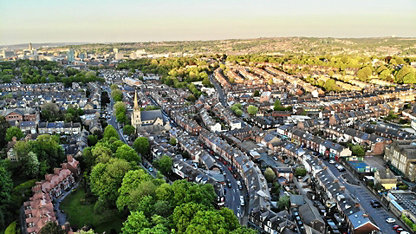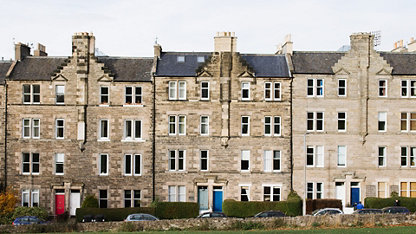With many European cities in the grip of acute housing crises, the negative impacts of short-term rentals mediated by online platforms such as Airbnb have become a subject of intense debate. A key issue is landlords buying up small flats to maximise yields through high-priced holiday rentals, pricing young renters and lower-income groups out of neighbourhoods.
City governments across the world have been responding to this phenomenon in different ways, sometimes passing new forms of regulations to control short-term rentals.Berlin has taken a strong regulatory approach, introducing measures to curb the growth of short-term rentals following repeated complaints from residents concerned about the shortage, and high cost, of housing in the city.
In 2014 a law was introduced making it illegal to let a property on a short-term basis repeatedly, without authorisation from the district administration, with a two-year grace period for hosts to get that approval, depending on their situation and motives. If applicants are themselves renters, they also need the approval of their landlord.
In 2018, the regulation was amended. A distinction between letting one or more rooms equivalent to less than half the surface of a main residence – flatsharing, effectively – and letting it entirely was established. Anyone who wants to let their main residence for up to 60 days must register online, indicating the days they plan to rent out the flat. The maximum fine has been raised to €500,000, 10 times more than its original limit.

The city of Berlin has taken drastic measures to combat the rise in Airbnb-style short-term letting
Approximately €2.5m per year is devoted to financing a taskforce of "detectives" to identify illegal letting, which tends to be brought to their attention through complaints from residents, who can fill out an online form or call a hotline. The taskforce inspects properties and, if necessary, gathers information for taking illegal landlords and "hosts" to court.
Berlin's strict approach has paid off. By the beginning of 2018, nearly 130,000 people had registered to let a secondary residence in the city, and almost 4,000 short-term rental properties had been brought back to the regular rental market, out of roughly 20,000 listings in the city. By the same date around €2.6m in fines had been imposed on misusers of housing space.
Beware B&B: How three other cities tackled short-term rentals
Barcelona zones in on problem
The Catalan capital's dilemma is that, although tourism generates 15% of the city's GDP, the high number of residential units devoted to visitors has increased the unaffordability of homes for many residents, as well as disturbing their peace and lifestyle. Between 2014 and 2018 house prices increased by 41%, while average rents rose by 18% in 2016. Since 2017, regulation has included a freeze on new licences, zoning to spread units over a wider area and measures to detect illegal lets.
Paris homeowners meet their match
Short-term rentals have become a concern for City Hall after an increase in "unoccupied properties" (vacant units, seasonal housing, and secondary residences), which has coincided with a rise in short lets, and house prices. Main residences can't be rented out for more than four months a year, and the law now demands online listings make this clear. Short-term rentals of more than 120 days have been classed as commercial, not housing, since 2010, and in 2014 a law was passed requiring anyone wanting to let a secondary residence to apply for change of use. A crackdown between 2012 and 2018 brought about 570 properties back on to the housing market.
Sharing's caring in Milan
Milan has taken a lighter approach to short-term rentals than many other cities, encouraging "home-sharing" – renting out rooms – as part of the so-called sharing economy, which was part of the agenda of the city government ahead of the World Expo held in Milan in 2015. The aim of the Milano Sharing City policy was to marry economic growth to social inclusion through, among other things, new technology.
- As told to Cherry Maslen by Claire Colomb, professor of urban studies and planning at the Bartlett School of Planning, UCL, and author of a forthcoming RICS insight paper on short-term rentals in European cities. Read the paper at rics.org/insight
- This article originally appeared in the Start-Up issue of Modus (October 2019)










